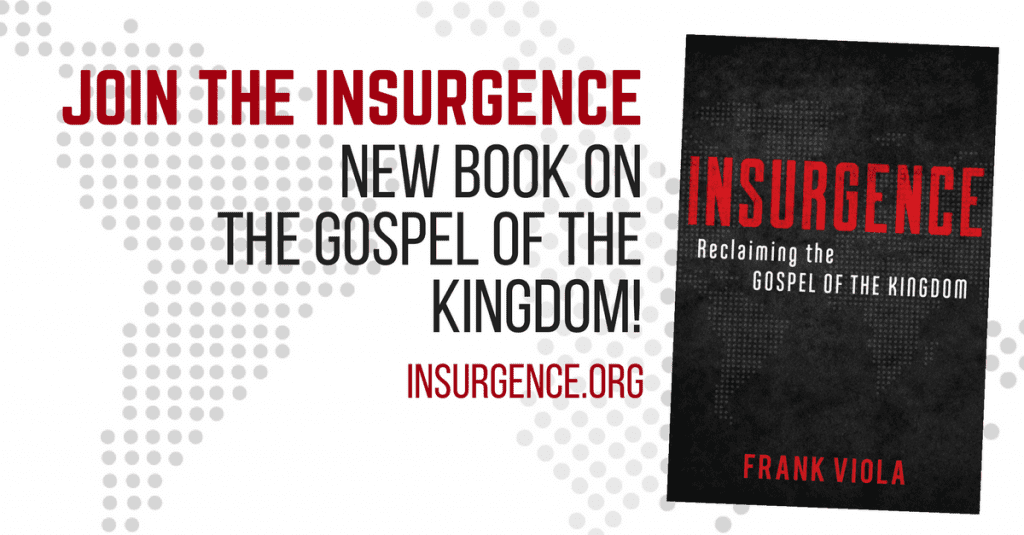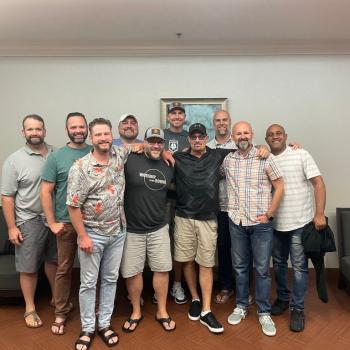As many of you know, much of my work is designed to set God’s people free from man-made religious constructs, concepts, and constraints. And that includes setting our sisters in Christ free — those who make up half the believing priesthood.
Recently, I caught up with Gail Wallace of the The Junia Project to discuss her work. Gail is the co-founder of the Junia Project.
Enjoy!
What is The Junia Project exactly?
Gail Wallace: The Junia Project (TJP) is an online community for men and women who advocate for the full inclusion of women in the home and in the church. As you know, there are very different views in evangelical circles today about how men and women should relate and serve together. We believe that the Bible teaches that both men and women are called to serve at all levels, and that leadership should be based primarily on gifting and not on gender.
Advocacy happens mostly through blogging and social media channels, although we do have some local events during the year. Our blog serves as a platform to educate people about our position and to challenge theology that restricts women in their calling. We’ve been around for just over a year and so far about 30 writers have contributed over 160 posts.
Share the story about naming the project.
Gail Wallace: Junia was a female apostle commended by Paul in Romans 16, verse 7: The NIV 2011 reads “Greet Andronicus and Junia,my relativeswho were in prison with me; they are prominent among the apostles, and they were in Christ before I was.” For centuries the fact that Junia was a woman was concealed when an “S” was added to her name to make it masculine, presumably because the translators could not imagine there had been a woman apostle. But we know now that the male name Junias was virtually nonexistent during that time period, while the feminine Junia was fairly common – and still is today in that part of the world!
In a way, what happened with Junia’s story is typical of the way women in the Bible and church history have been presented over the years. Women are sometimes discussed in a very one-dimensional way, minimized in importance, or even vilified. For example, many people still believe that Mary Magdalene was a prostitute, even though there is no evidence for this anywhere in scripture. So Junia seemed a fitting name for a group that would advocate for a deeper theology of women.
What provoked you to start it?
Gail Wallace: Provoked is a great word for it, really! There were two things that converged at the same time. Through a series of circumstances my daughter Kate and I became aware of the prevalence of “complementarian theology” in our area – a position that holds that men and women are equal, but created by God to fulfill different roles. The problem is that those roles are assigned in such a way that women are always required to be under the authority of men.
As we started asking people about this in our individual social circles, it was like a floodgate opened. We quickly learned that many Christians question this male-authority model and are eager to learn more about those streams of evangelicalism that have a different interpretation. We also realized that women with strong leadership gifts often had to go outside the church to use their gifts, and we learned that women are leaving the church at a higher rate than men are, according to the most recent Barna Group study.
About that same time I read the book “Half the Sky”, by journalists Nicolas Kristoff and Sheryl WuDunn, which opened my eyes to the mistreatment of girls and women around the world and was alarmed to learn that a theology of female subordination contributes to an imbalance of power that contributes to sexism and abuse. This was alarming, to say the least. We began to pray daily, “Lord, what role would you have us play in addressing gender injustice?” The Junia Project is one result of those prayers.
How is it different from other women’s ministries today?
Gail Wallace: The biggest difference is that The Junia Project isn’t a women’s ministry, but an online advocacy group. Our community is about 35% male and 65% female, and our largest age group is in the 25-34 year-old demographic. Both men and women are featured on our blog, both moderate discussions and are involved in local events. But women do write to us often to let us know how much they are encouraged and empowered by what happens in this online community.
Who would benefit from the project?
Gail Wallace: It is hard to think of a group that wouldn’t benefit from thinking more deeply about how men and women should relate and partner together. Our audience includes pastors, church leaders, students, stay-at-home and working parents, marrieds and singles – anyone interested in learning about the scriptural basis for women’s equality. There is also a lot of content on the website about women in the bible and how to interpret the so-called “difficult” passages, and this is especially helpful for pastors and others who teach.
What has been the most discouraging thing you’ve seen come from the project?
Gail Wallace: It is always discouraging to get an email or to read a blog comment about how someone has left the church (or even their faith) because of church teaching that supports male hierarchy – and we get these all too often. But I think the most discouraging thing has been realizing how deeply ingrained patriarchal attitudes are in the church.
We don’t expect every person who reads our blog to agree with us – we all have our own perspectives that inform the way we see the world and read the Bible. But disagreeing is different than the condescending rhetoric that sometimes shows up in our comments or email – often from male pastors, sadly. The gendered nature of the comments reveal that it’s not about engaging in a debate, but about belittling our writers and trying to bully us into silence. On the other hand, every time we hear from someone like this we are even more motivated to press on!
What has the most encouraging thing you’ve seen come from the project?
Gail Wallace: The most encouraging thing has been to see how the message of biblical equality is being shared in so many places by so many people. Yesterday my husband got a text message from a friend in the Midwest saying that his pastor had shared something from The Junia Project in the Sunday morning sermon.
In a typical week we might hear from a woman pastor thanking us for encouraging her on a tough day, a male pastor asking how he can do more, someone who has decided to give church another chance, or a seminary student who lets us know that he “converted” after reading the blog for a few months. This kind of thing happens regularly enough to keep us motivated!
And in a year what started out as a Facebook page for our local community now has over 3500 followers in 120 countries, and a website with a subscription list of 800, all by word of mouth. The message of equality and mutuality is an important part of a Gospel that teaches “a priesthood of all believers”, and a body that is “one in Christ Jesus.”
How can people get involved with The Junia Project?
Gail Wallace: Since this is something that affects half the church, every Christian has a responsibility to study this issue thoroughly. One of the easiest ways to do that is to subscribe to The Junia Project blog and have short articles delivered to your inbox about twice a week. You can also follow us on social media and join the discussions when new topics are posted –readers tell us they often learn as much from the discussion as the posts.
But here’s the bottom line – Kate and I are just two people who started praying seriously about the cause of gender equality in the church, and The Junia Project is one outcome of those prayers. So we would encourage readers to do the same. What might God be saying to you about your role in advocating for his daughters? I believe that if the body of Christ will earnestly seek God’s heart on this matter and act on the convictions that come out of that, there won’t be a need for The Junia Project anymore.
Looking for more? Check out these explosive articles:
Does Christianity Have a Feminine Feel?
A Farewell to Self-Righteousness – In Honor of Our Sisters in Christ













